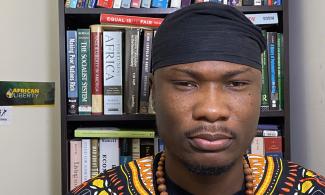
At this point, it is obvious Nigerians are more politically aware than at any time in history. Politicians should know that any irrelevant statement, actions, or policies promoted by the state would be called out. The Soro Soke (Woke) generation will not stand by while the country’s democratic promises are rubbished with absurd policies and actions.
The growing calls for the regulation of social media platforms in Nigeria by the country’s politicians are absurd and a misplaced priority. Rather than reduce hate speech and fake news as the policy proponents hope, it would only give the government needless powers to determine the extent to which Nigerians enjoy their God-given freedom of expression. Moreover, there are more serious issues with which politicians should be preoccupied.
One would wonder how the politicians in the country could give such an intense level of energy to promoting an issue that has less relevance to the prosperity and safety of Nigerians. This especially at a time the country is faced with greater security problems. Boko Haram seems to be gradually resurfacing in the Northeast; herdsmen still perpetrate horrendous crimes across the country; there still isn’t a proper account of who ordered the massacre of EndSARS protesters in Lekki, and Nigeria is still the poverty capital of the world. It's an endless list.
How could any government that fails to solve each of these problems have the audacity to threaten its people's freedom? Particularly on platforms that serve as channels of peace, which keeps people away from the many problems the government has failed to fix?
Instead of coming on air every time and successfully giving Nigerians zero concrete reasons why regulating social media platforms is the country’s most pressing issue, the Minister of Information and Culture, Lai Mohamed and his colleagues should focus on providing answers to the public’s most pressing question: Who ordered the Lekki shootings?

Whereas, the so-called fake news trend the government is too concerned about seems to always affect politicians and governments when it relates to a shortcoming of theirs. Not when the average Nigerian is threatened or bullied. For instance, despite numerous reports that Fulani herdsmen have perpetrated massacres against farmer communities in the last five years, which are killings the federal government has confirmed, northern politicians continue to arrogantly deny they happen. The federal government did not, in this case, frown at such denial or call it an action that could trigger intertribal conflicts. It seems ominous that the legislators championing the proposed social media regulations are also those facing the most backlash from their constituents in the fallout of the EndSARS protests. But Nigerian politicians must realize that the proposed regulation wouldn’t fix the country. Instead, fixing certain aspects of the government would make Nigeria prosperous and safe.
The chief problem mitigating the prosperity of Nigeria is corruption. This is as clear as daylight. The country cannot have stable electricity or an efficient healthcare system because state officials embezzle funds meant for the provision of these services. If there’s as much energy on flushing out the corrupt officials like those directed towards social media regulation, corruption will decrease while electricity and healthcare improves.
More so, it’s unlikely that if millions of unemployed Nigerians have jobs, they would spend the same amount of time as they presently do on social media. People want to be more consumed with meeting deadlines and making the extra thousand nairas. They want to be less bothered about trolling a politician on Twitter or Instagram. As such, politicians should be concerned about implementing pro-market economic policies that’d create jobs in the private sector and less worried about who is criticizing the president online.
The undeniable fact about this proposed policy is that the politicians leading the calls know that they are putting energy in the wrong endeavour. They’re only concerned about protecting their images and shielding the public from the truth about their dealings. But Nigerians are equally aware that the call to regulate social media is only a diversion from answering questions about the Lekki massacre and other burning issues. So, who is playing whom?
At this point, it is obvious Nigerians are more politically aware than at any time in history. Politicians should know that any irrelevant statement, actions, or policies promoted by the state would be called out. The Soro Soke (Woke) generation will not stand by while the country’s democratic promises are rubbished with absurd policies and actions. The talk at this moment should be about fixing Nigeria and pursuing justice for victims of the Lekki massacre, not regulating what people post or comment on Facebook.
Ibrahim B. Anoba is managing editor at African Liberty and a fellow of the Center for African Prosperity at the Atlas Network. He tweets via @Ibarhim_Anoba.